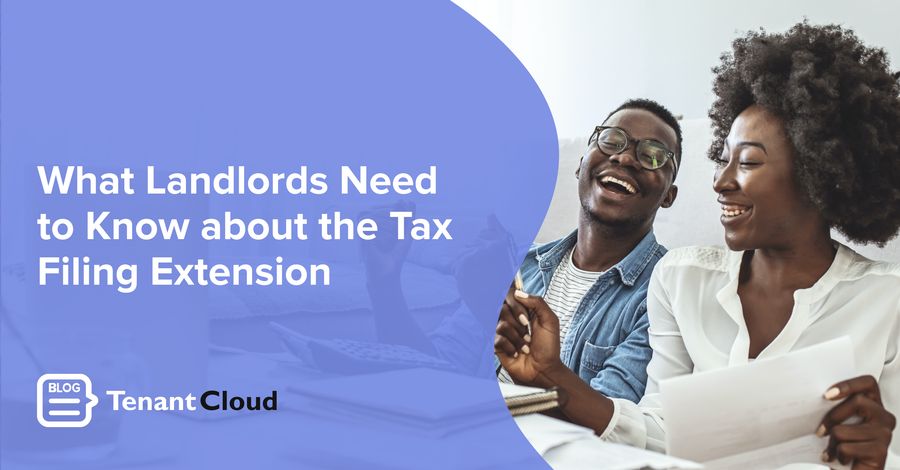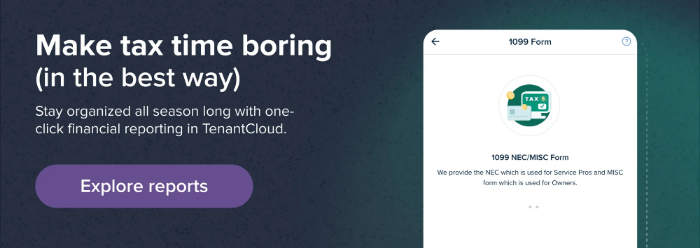Due to the pandemic, May 17 is now the official federal tax day for individual taxpayers this year. Postponed from April 15, this new tax day provides a needed federal tax extension for many. If individuals need more time to complete their taxes, there’s nothing they have to do (like file a form) to qualify for the extension. It’s automatically available for them, and penalties and interest only apply after May 17.

As a landlord, however, there are some details you should keep in mind regarding this extension:
- The May 17 extension, as it currently stands, doesn’t include estimated tax payments. While most taxpayers don’t have to think about submitting estimated taxes—because taxes are generally withheld from paychecks—others do. People who receive income (such as rental income) that’s not automatically subject to tax withholding will likely need to submit these estimated payments. This type of income requires taxpayers to submit quarterly estimated tax payments to the IRS throughout the year, and the first of these estimated payments is still due on April 15.
Related: Tax Season 2021: The IRS Tax Tips, Tax Deductions for Landlords
How do you know if you need to pay these quarterly estimated payments for your rental income? Every situation is different, so the best way to know is to talk to a tax professional. However, in general, if your rental units bring in profit and you expect to owe $1,000 or more in federal taxes, you’ll likely need to submit quarterly estimated payments. (One exception would be if you withhold enough taxes on a paycheck to cover your rental profits—then you wouldn’t have to worry about quarterly payments.) Keep in mind that not submitting these payments properly will likely land you a penalty for underpayment.

If you’re hoping that this first estimated federal tax payment deadline also gets extended, it’s possible . . . but unlikely. Sixty members of Congress, from both sides of the aisle, have urged the IRS commissioner in a letter to extend this date to May 17 as well. To date, the IRS hasn’t heeded this letter, and time is running out to submit them, so it’s better to prepare your submission. Keep money in your pocket, by avoiding the penalty for underpayment, and get ready to submit by April 15.
- While individual federal taxes are due on May 17, your state tax day may not follow suit. To date, thirty-five states, as well as the District of Columbia, have extended their tax deadlines to match this federal change. Maryland went a little further and pushed its deadline back to July 15, and on the other hand, while Alabama is waiving fees until May 17, it’s indicated that tax interest will start accruing if submissions come in after April 15. The point is, know your state tax deadlines, because it’s possible they haven’t changed.
- If you live in Texas, Louisiana, or Oklahoma, you may have even longer to file your federal taxes. Since these states were hit hard by the February winter storms, the federal tax date was extended to June 15 for storm victims. While the May 17 federal deadline only applies to individual returns, this federal tax deadline extension applies to both individuals and businesses affected by these disasters. If you live in a federally declared disaster area, look into this and take advantage of this area-specific federal extension.
- If you don’t have to worry about estimated federal tax payments and you need more time beyond May 17 to file your individual federal tax return, you’ll need to be a bit more proactive. Form 4868, Application for Automatic Extension of Time to File, is what you’ll need to submit to the IRS. This extension would allow you through October 15 to send in your tax filing.
Taxes are complicated. Even this federal tax extension, which seems so simple on the surface, shows there are many details landlords need to know. TenantCloud can help. Our software helps track details that could land you tax breaks. Be sure to take advantage of these systems so you can simplify your life and leave the stress behind.
Rental Property Security Deposit: Basic Tips You Need To Know
2021 Tax Season Amid the Pandemic: Useful Infographic to Your Most-Asked Questions
Landlord Tax Deductions: Software for Landlords by TenantCloud








